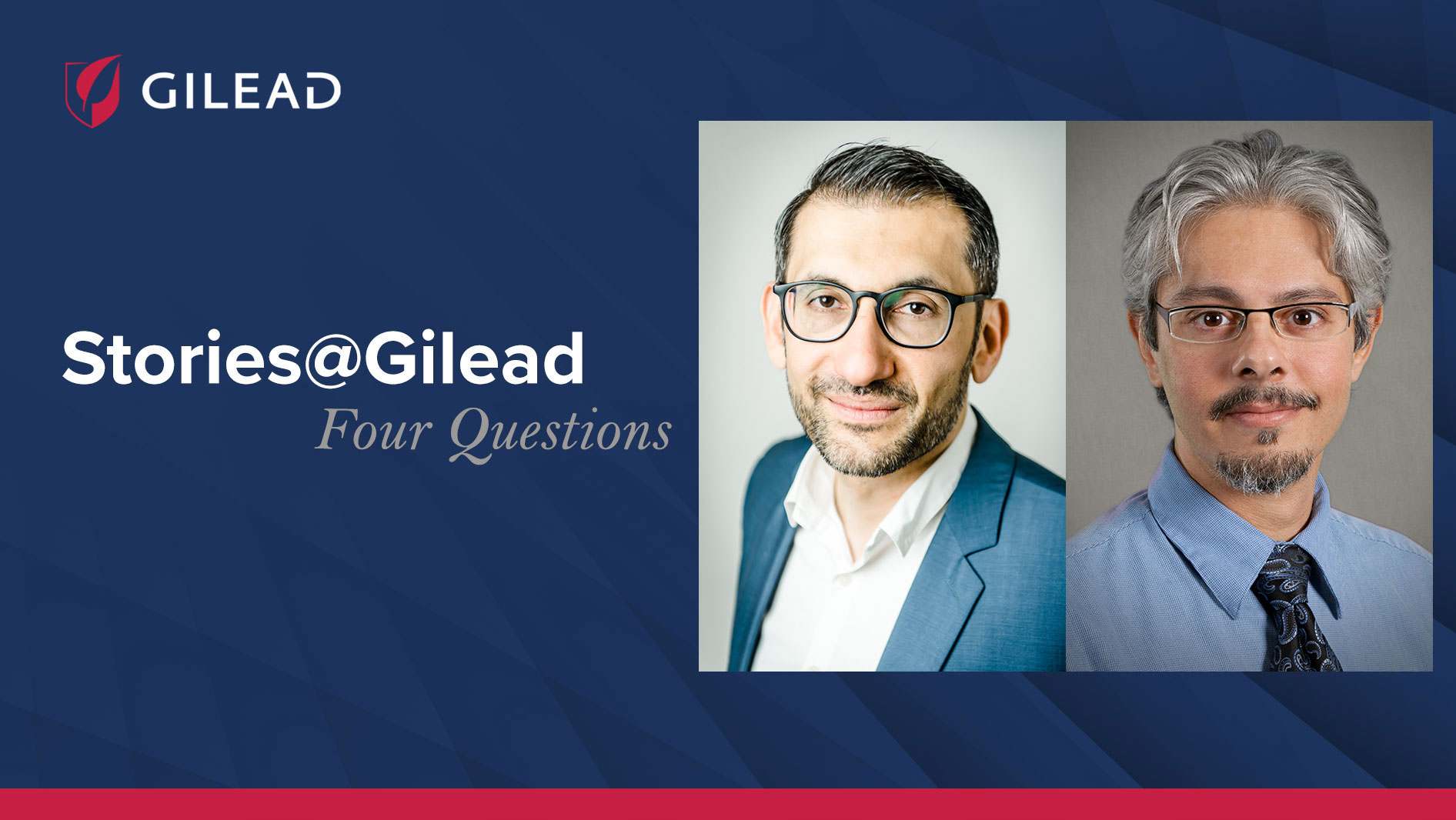Share Article
Behzad Kharabi and Bijal Shah have spent the majority of their careers treating and searching for new therapies for acute lymphoblastic leukemia (ALL) – a cancer of the blood and bone marrow that is an aggressive type of leukemia. Many people associate leukemia with children, but approximately half of all cases occur in adults and the disease is significantly more difficult to treat in adults.
The poor outcomes have inspired Behzad, Executive Director of Clinical Research at Kite, and Bijal, Associate Professor in the Department of Malignant Hematology at Moffitt Cancer Center, to pursue research in the area. They aim to help the approximately 1,000 adults with ALL who are treated each year for relapsed cases in which their cancer comes back or refractory cases in which their cancer didn’t respond to treatment.
Behzad and Bijal sat down with us to highlight the need for new treatments for adult ALL and to discuss chimeric antigen receptor (CAR) T-cell therapy, which is designed to engineer a person’s own white blood cells to fight cancer.
Q: What inspired you to pursue careers in hematology and oncology?
Bijal: After spending time in pediatric and adult oncology as an undergraduate, and later as a medical student and resident, I developed a progressive admiration and empathy for those challenged by hematologic malignancies. This was met by an equal sense of fascination and wonder with the biology and the therapeutic implications of these insights. The primacy of being able to literally see in the blood and marrow I would be treating set the stage for my career path in this field.
Behzad: During the third oncology rotation at my medical school in Germany, I was in an outpatient clinic, where I was seeing many people with acute leukemias. Some of them were only 20 years old. It was tough. I wanted to not only treat people with the disease, but really try to improve the therapy and the science, and that’s what I’ve been doing for 16 years now.
Q: How does ALL in adults differ from other types of leukemia?
Behzad: ALL is a fast-growing blood cancer that is especially hard to treat when it occurs in adults. The vast majority of adults with ALL respond to current treatments initially, but long-term remission is more challenging – many people will eventually relapse.
Bijal: Only 30-40% of adults living with ALL achieve complete remission. We need new therapies to address this so people with ALL can achieve lasting remission after undergoing treatment and not live with fear that their cancer will come back.
Q: What are the gaps in treatment options for adults with relapsed or refractory ALL?
Behzad: It’s very challenging to get adults with ALL into remission and keep them in remission. People who relapse only live an average of about eight months, so there’s a sense of urgency when you’re treating these individuals.
Bijal: Adults living with acute leukemias can often be subjected to years of therapy that involves multiple rounds of treatment. We have an obligation to try to figure out how to make treatments that are better for adults living with ALL, including those with relapsed or refractory disease.
Q: Can you talk about the progress of CAR T over the past couple of years and its potential for adults with relapsed or refractory ALL?
Bijal: We’ve seen incredible progress with CAR T in the treatment of certain hematologic malignancies over the past five years. What’s unique about this therapy is that it’s a one-time infusion. That’s incredibly meaningful for people with relapsed or refractory ALL who have already been through several rounds of treatment. There's obviously a long path forward in getting CAR T to more people. But I couldn't be more excited about it. As we look to the future, making CAR T available in earlier lines of treatment, when T cells are healthier, should be a priority.
Behzad: I think the next couple of years are going to be very interesting for this entire field, which is growing at hyper speed. It’s an important time to be working on CAR T-cell therapies at Kite, as we look at moving into new disease areas and helping even more people – many who thought they had exhausted their therapy options.

